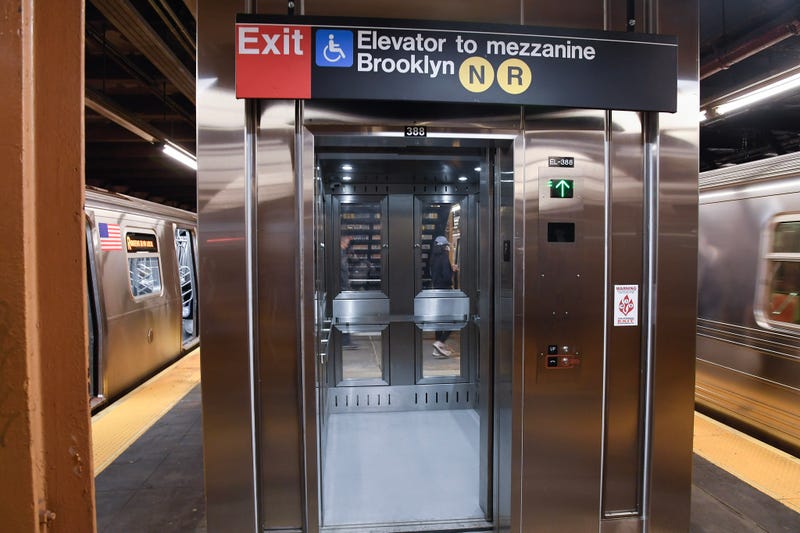
NEW YORK (WCBS 880) — Dozens of new elevators may soon be constructed, or rehabilitated, to help make the New York City transit system much more accessible.

The MTA board has scheduled a vote for next week on plans to bring new elevators to a total of 26 subway stations – including 19 that currently lack accessible entry.
Transit officials said if approved, the plans would also rehabilitate existing elevators at seven stations.
“Accessibility improvements are central to the MTA and are at the top of the list of our capital program initiatives,” said MTA Acting Chair and CEO Janno Lieber. “Our transit system is the lynchpin of this region and has to be accessible for everyone.”
According to agency officials, MTA Construction & Development will be seeking board approval for a Private Public Partnership (P3) at December’s meeting, in order to complete 13 station projects.
If approved, P3 would allow the private sector to help the MTA streamline finance issues and allow the agency to reach accessibility goals faster.
“This approach, while new for the MTA, is also known as Design-Build-Finance-Maintain and has been used around the world to effectively deliver infrastructure projects efficiently,” the MTA said in a release.
“The Authority will engage with a private partner who will be responsible for accessibility projects at a quicker timeframe and lower cost – including a contractual obligation to maintain the elevators for 15 years. Under this agreement, failure to do so would result in the private entity not receiving compensation,” the MTA added.
The 13 planned P3 projects would make eight stations newly accessible: Church Avenue, Sheepshead Bay, Rockaway Boulevard, Kings Highway, Junius Street, Mosholu Parkway, Steinway Street and Woodhaven Boulevard at Queens Boulevard.
It would also rehabilitate elevators at five stations: 125th Street, 34th Street-Penn Station, Euclid Avenue, 161st Street-Yankee Stadium and Third Avenue-149th Street.
“Next week’s board meeting will be one of the most important meetings in the MTA’s history when it comes to discussing ADA projects and our commitment to accessibility,” said MTA Chief Accessibility Officer Quemuel Arroyo. “Leveraging Design-Build-Finance-Maintain is going to help the MTA make a major leap forward in making our system more accessible at a fraction of the time and cost.”
In a press release, the MTA said it will dedicate over $5 billion in capital spending to complete the projects.


